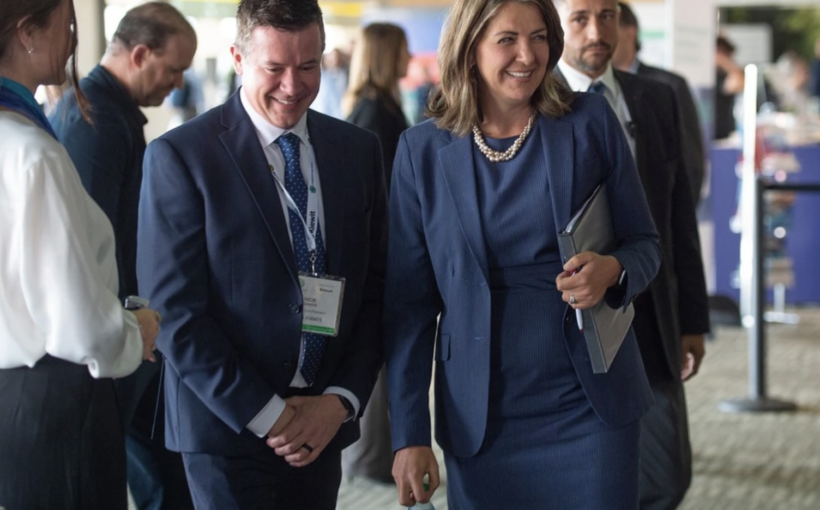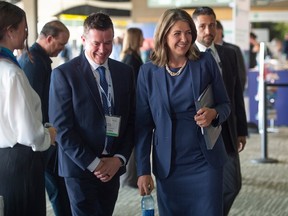Alberta Premier Danielle Smith says she will have a program dedicated to helping spur more carbon capture projects in the province announced by the end of November. Read More
Her UCP government has said it will roll out incentives for carbon capture, utilization and storage (CCUS) projects similar to the Alberta Petrochemicals Incentive Program (APIP), which offers grants covering up to 12 per cent of capital costs once projects are operational.
Speaking at the Carbon Capture Canada convention in Edmonton Tuesday, Smith said she wants to have the program ready to announce before the province sends a delegation to the United Nations Climate Change Conference, COP28, which is scheduled to start Nov. 30 in Dubai.
“We are working very hard on that … and we’ve told the federal government that we’re working towards that timeline,” said Smith.
The oil and gas industry has been calling for more government help to develop the technology and keep Canada competitive, especially in light of major tax credits for carbon capture in the United States that came with last year’s Inflation Reduction Act.
“I understand the concern that the industry has, and wants to see federal and provincial governments working together, but we also know that there’s been an ideology in in the country for a long time that has suggested that somehow the energy sector, the traditional energy sector, doesn’t play a role in that,” said Smith.
Last week, Reuters reported that the Pathways Alliance, made up of the largest oilsands producers, was struggling to get the federal government to agree to a carbon contract for differences — which would guarantee carbon credit pricing in the future — because Ottawa deemed the project too large and risky.
“Our plan is to be meeting every two weeks to get an update. We have a sense of urgency,” said Smith.
Katherine Cuplinskas, a spokesperson for Chrystia Freeland, the federal finance minister, pointed in a statement to the $120 billion Ottawa has put towards its clean economy jobs plan, including contracts for difference through the Canada Growth Fund for CCUS.
The premier’s comments come after Alberta’s Opposition NDP urged the province to pony up the details of its CCUS incentive program on Monday.
Climate and energy critic for oil and gas Kathleen Ganley said in a Tuesday statement it was disappointing Smith didn’t offer industry leaders a plan to support development.
“The provincial and federal governments have both made repeated promises to support carbon capture utilization and storage but have failed to deliver. Unfortunately, all Danielle Smith had to offer today was more vague promises and more delays,” said Ganley.
Smith has been adamant that the province doesn’t intend to transition away from oil and gas, even as it aims to be carbon neutral by 2050.
“We’re not going to move away from fossil fuel use, we’re going to move away from emissions,” she said, adding they will continue to be used for things other than combustion, including in the production of petrochemicals.
On Monday, the head of the International Energy Agency predicted demand for oil and gas will peak before 2030, although projected declines in demand won’t be enough to limit the impact of climate change without government action.
As Wildrose Opposition leader 15 years ago, Smith was opposed to $2 billion in taxpayer dollars going towards carbon capture projects but has since changed her tune.
Smith said Tuesday during the PC era, bureaucrats picked winners and losers, but now the UCP wants to create a “broad-based carbon credit program” that is more accessible and sustainable.
“Looking back, I think it was important for there to be a couple of major significant investments to be able to get the breakthrough technology,” she said, reiterating that even now, carbon capture technology is “not perfect yet.”




